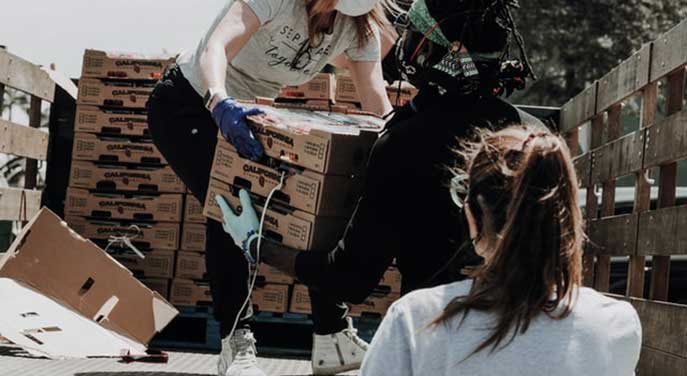 Did you know that there is a global food security index? The well-known magazine The Economist has just published its 11th edition.
Did you know that there is a global food security index? The well-known magazine The Economist has just published its 11th edition.
The Global Food Security Index comprises a set of indices from more than 120 different countries. Since 2012, the index has been based on four main pillars: food access, safety, sustainable development, and affordability.
The approach is quite comprehensive and robust. Index indicators include nutritional standards, urban absorptive capacity, food consumption as a percentage of household expenditure, food loss and waste, protein quality, agricultural import tariffs, dietary diversification, agricultural infrastructure, volatility of agricultural production, public spending on agricultural resource and development, corruption, risk of political stability, and even the sufficiency of supply. In short, anything goes.
Finland ranks first this year, followed by Ireland and Norway. Canada is well-positioned compared to other countries around the world since we are ranked seventh globally, the same as last year. Not bad. The United States is 13th.
 |
| Related Stories |
| Canada’s food security depends on significant policy shifts
|
| More Canadians than ever are suffering from food insecurity
|
| Food theft is on the rise as prices climb |
In terms of food access – which measures agricultural production, farm capacities, and the risk of supply disruption – Canada ranks sixth, which is not too surprising. Despite our recent episodes of empty shelves and stockouts, Canada can boast about its food abundance. We produce a lot and are part of a fluid North American economy focused on cross-border trade, which allows for better food access.
Another pillar focuses on sustainable development, the environment, and climate adaptability. This pillar assesses a country’s exposure to the impacts of climate change, its sensitivity to risks related to natural resources, food waste management, and how the country adapts to these risks. In this regard, Canada is ranked 29th, far behind Norway and Finland, who are first and second in this category. Food waste remains Canada’s Achilles’ heel, as we waste more than just about anyone else on the planet. But with higher food prices, more than 40 percent of Canadians, according to a recent study, are wasting less than they were 12 months ago.
When it comes to food safety and quality, Canada ranks first in the world. Canada is ahead of everyone, even Denmark and the United States, both renowned for their proactive approaches to food safety. Food safety in Canada is perhaps the facet most underappreciated by consumers.
Despite a few momentary failures and periodic reminders, sanitation practices in the country are exemplary. Canada has consistently ranked well for years, except perhaps when traceability is measured. We have a long way to go, but the industry and public safety regulators are performing relatively well.
But the area where Canada’s performance is of some concern is food affordability. This measure is dedicated to consumers’ ability to purchase food, their vulnerability to price shocks, and the presence of programs and policies to support consumers when shocks occur.
Canada fell one spot again this year and sits at 25th in the world. Australia, Singapore, and Holland top the list for affordability. Given the resources and food access we have, Canada should do better. Since July 2021, food inflation has always exceeded general inflation in the country, and everything is already costing more these days. Higher food prices at the grocery store over the past year have been difficult for many of us to accept. Canada needs a food autonomy policy, a more robust food processing sector, and better logistics domestically.
And with winter coming and our dollar visibly weakening against the U.S. dollar, we could see significant price jumps again, especially in the produce and non-perishables sections. As wages stagnate and food prices rise, it’s hard to predict when Canada will do better in terms of affordability. Specific fiscal measures such as tax reductions to help consumers would be more than timely.
Dr. Sylvain Charlebois is senior director of the agri-food analytics lab and a professor in food distribution and policy at Dalhousie University.
For interview requests, click here.
The opinions expressed by our columnists and contributors are theirs alone and do not inherently or expressly reflect the views of our publication.
© Troy Media
Troy Media is an editorial content provider to media outlets and its own hosted community news outlets across Canada.

